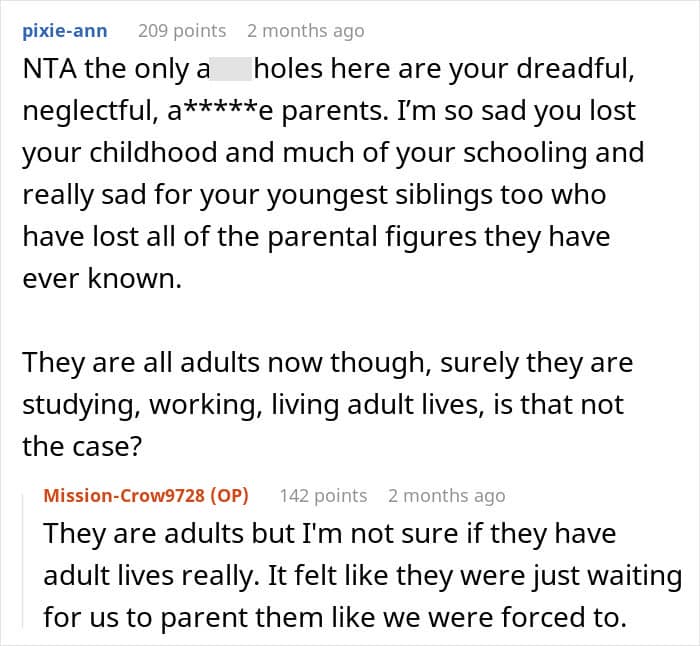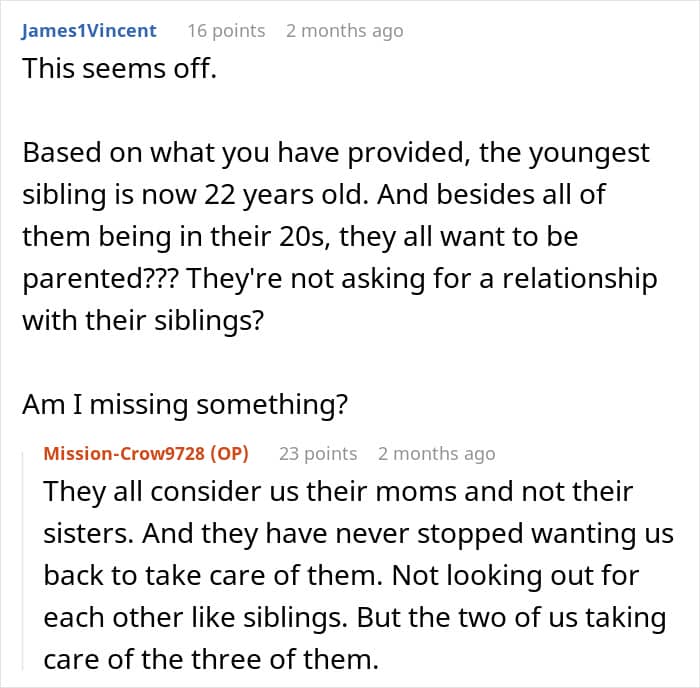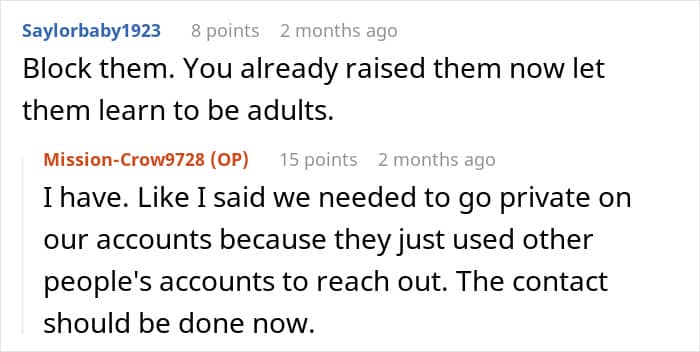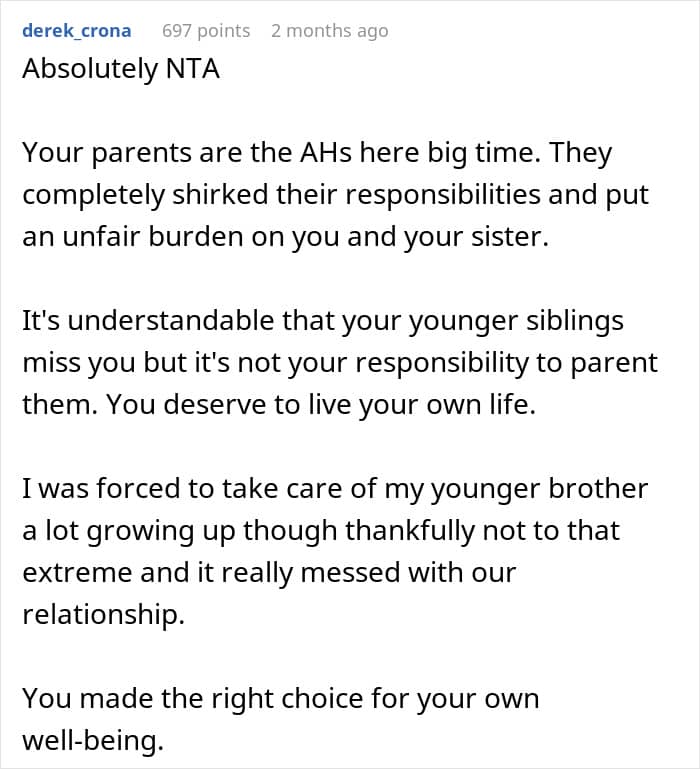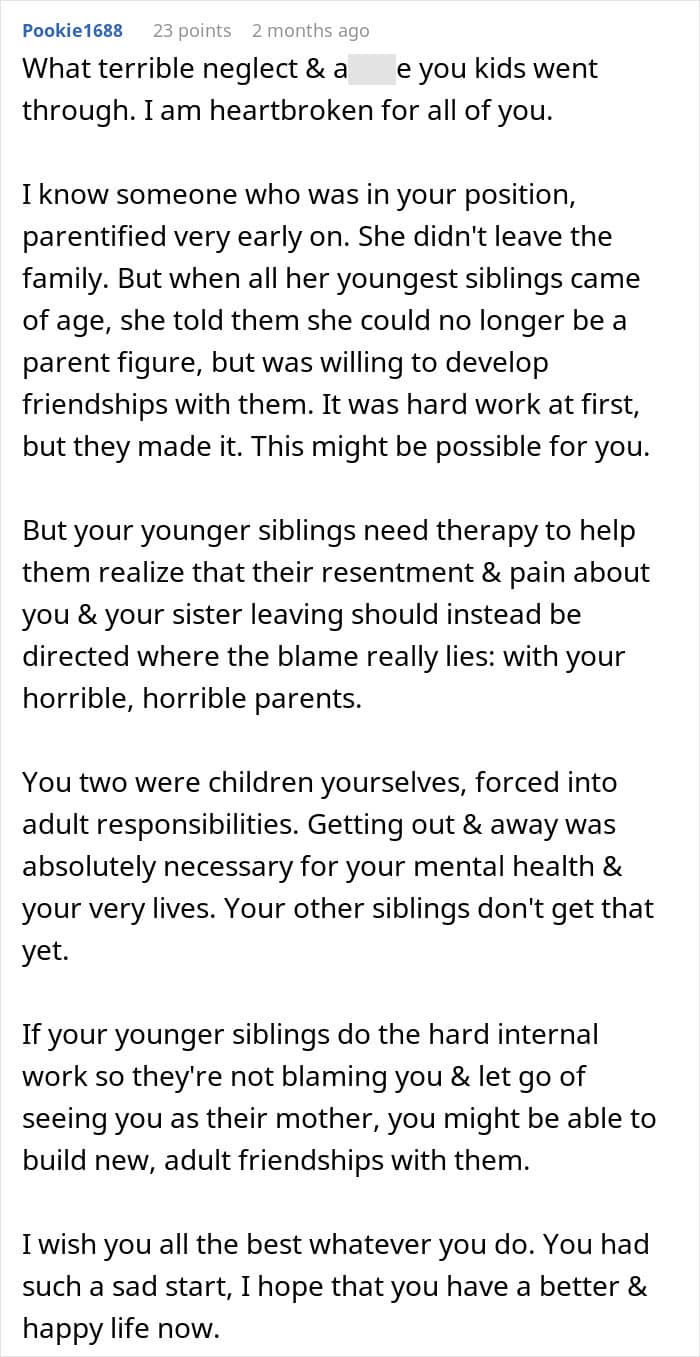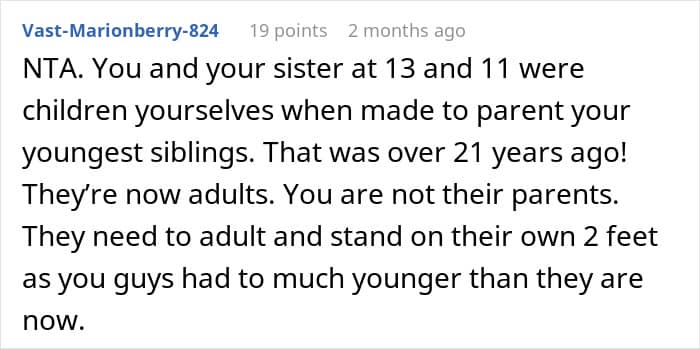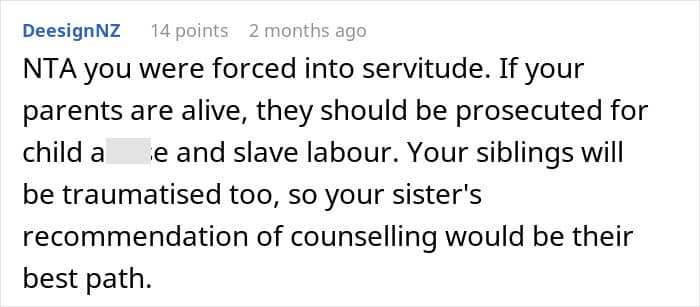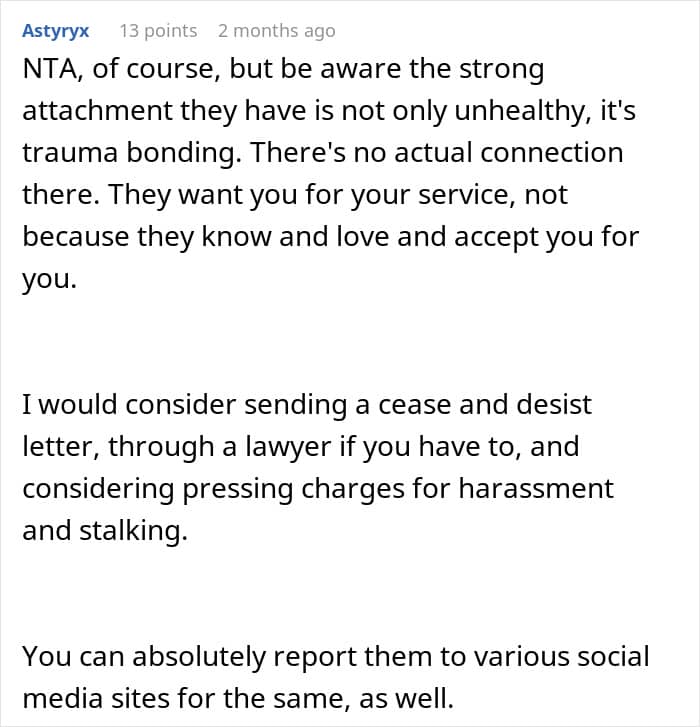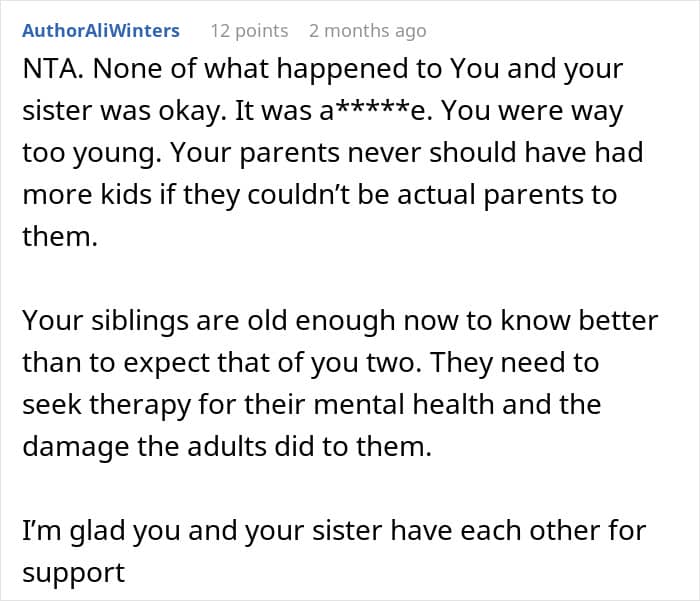Some children are forced to grow up too fast, either because they don’t have a parent’s presence or because the adult in their life refuses to take on the responsibility. Kids who’ve been parentified don’t get to enjoy their childhoods. It’s only when they’ve grown up that they can take some time for themselves.
This is what had happened to two women, who were finally able to enjoy their lives as grown-ups. That was, until their siblings tried to contact them again and guilt-trip them into being their ‘moms’ once more.
More info: Reddit
RELATED:Kids should be allowed to be kids without having to take on adult responsibilities in their childhood
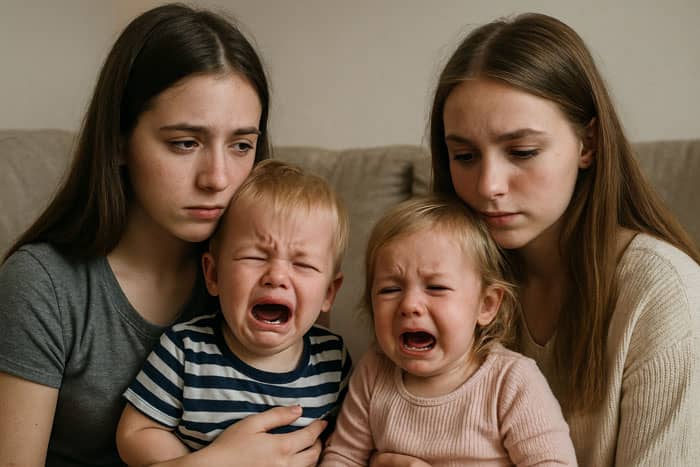
Image generated by We using chatGPT
In the poster’s childhood, her parents had started a business and didn’t want to pay for childcare, so they expected their older kids to look after the younger ones
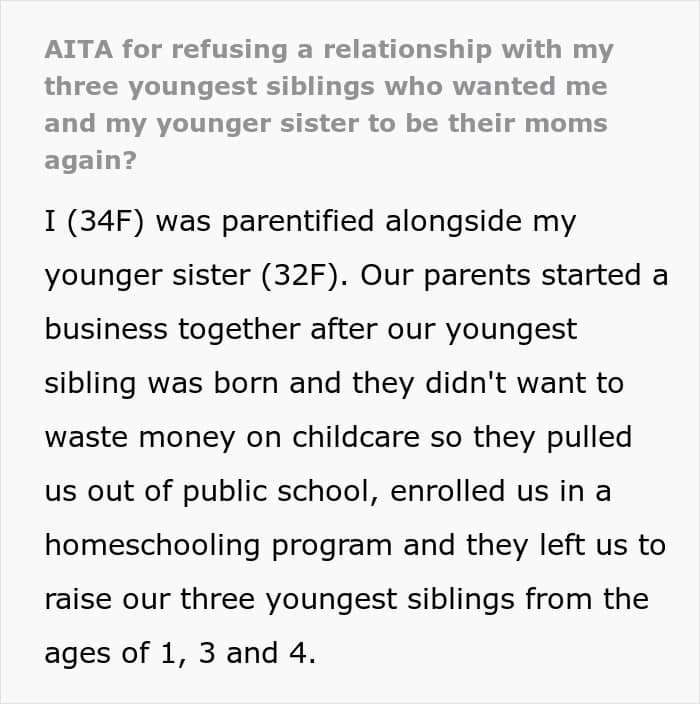

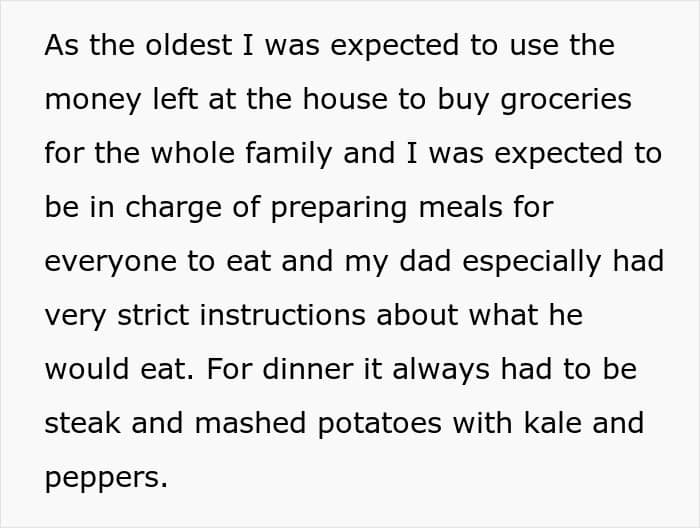

The 13-year-old poster and her 11-year-old sister were taken out of school and expected to manage the household and their three younger siblings
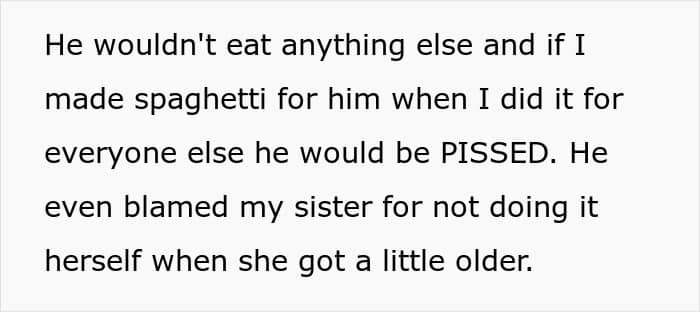
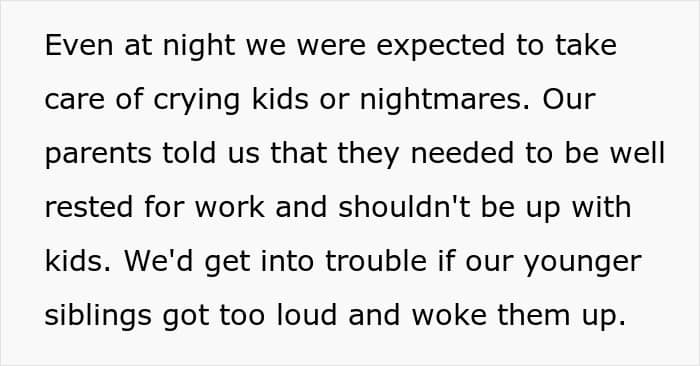
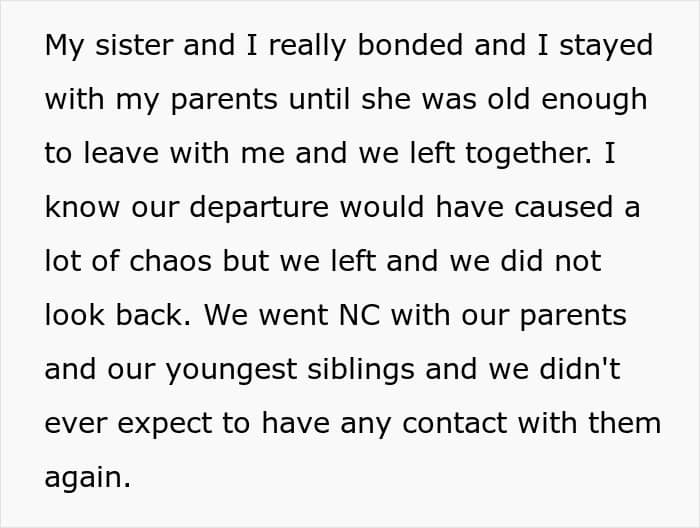

When the poster and her sister were old enough to leave their house, they moved out, cut contact with their parents and siblings, and didn’t look back
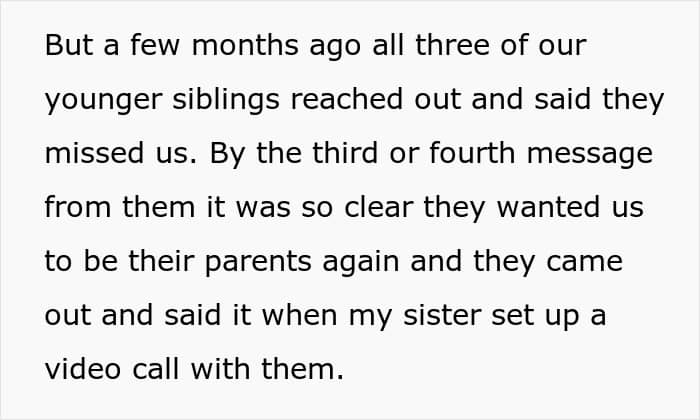
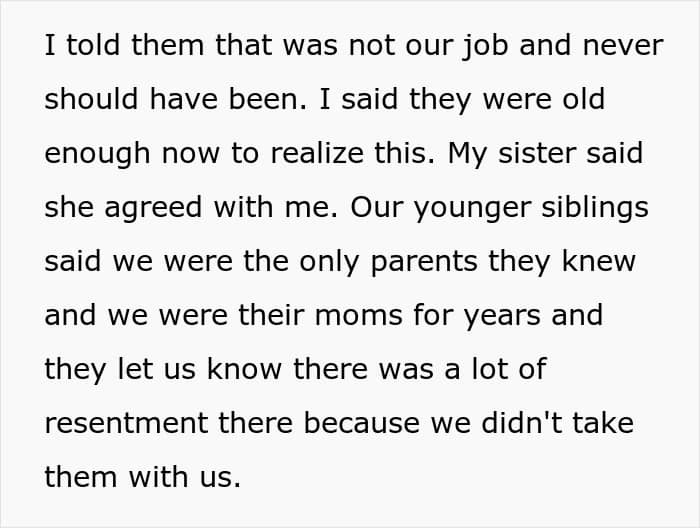
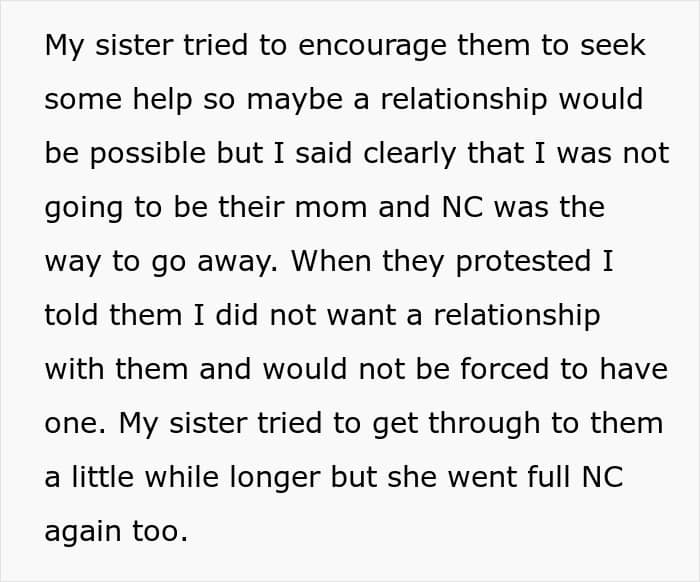
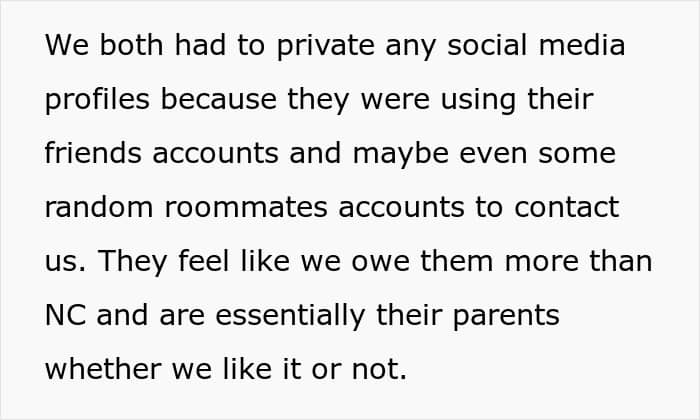

A while later, the younger siblings reached out, expecting their sisters to parent them again, but the two women refused and decided not to let them into their new lives
It must have been incredibly difficult for the poster and her sister during their childhood because they had to take on the role of their parents. While the adults were busy managing a business, the young girls had to look after the household and their little siblings. They had no opportunity to just be kids and enjoy themselves because so much was expected of them.
This situation is a classic example of parentification. It occurs when young children are forced to assume adult roles and responsibilities in place of their parents or guardians. Some of the reasons adults force these duties onto their kids could be due to divorce, illness, financial hardship, or immaturity.
It still doesn’t excuse what these young girls had to go through. They obviously had nobody else to turn to and had to find support in each other. With so many responsibilities on their shoulders, the tweens didn’t get enough rest, and were unable to do anything else in the day that they wanted to do.
To understand more about this, We reached out to Camilla Miller, a mum of two teenagers, an award-winning blogger, author, and parenting coach who is dedicated to helping families understand their children and bring out the best in them.
She told us that when “children are put in the role of raising other children, they lose pieces of their own childhood. Instead of learning, playing, and developing at their own pace, they carry adult responsibilities far beyond their emotional and developmental capacity. This can lead to chronic stress and burnout that later show up as anxiety, depression, or health issues.”

As soon as the girls were old enough to leave, they decided to move out and cut contact with their family. They knew that their departure from the house must have caused a lot of problems, but they also needed to protect their mental health. In the process, they were no longer in touch with their siblings.
Later, when the other kids showed up, it was a very jarring experience because it seemed like they wanted to continue the cycle of parentification. The poster and her sister realized that their siblings were trying to guilt-trip them into being their moms again and look after them because their parents were clearly not going to do so.
Camilla Miller explained that “these sisters weren’t simply ‘helping out’ in childhood; they were forced into full-time parenting roles. That experience likely left deep wounds, and reconnecting when the younger siblings were asking them to ‘be moms again’ risked reopening those wounds and pulling them back into the same harmful dynamic.”
“It’s important to remember: the younger siblings’ feelings are real, too. From their perspective, the older sisters were their primary caregivers. They attached to them as parents because their actual parents weren’t fulfilling that role. It’s understandable they would feel hurt and even abandoned when the sisters left.”
Camilla also shared: “Here’s the tricky part: both truths exist at the same time. Their truth: They lost the only ‘parents’ they knew. The sisters’ truth: They were children themselves and had to save themselves to survive.”
The decision these women took to set boundaries with their siblings was a profound act of self-care. It meant that they wouldn’t have to play that role again and get drowned in more resentment. They were free to live their lives without having to be parents to their siblings, and it also meant that the younger kids finally had to grow up.
Do you think there was any other way the poster and her sister could have handled this situation? We’d love to hear your opinion.
Folks sided with the women and felt that they did the right thing by turning their siblings away and living their own lives
